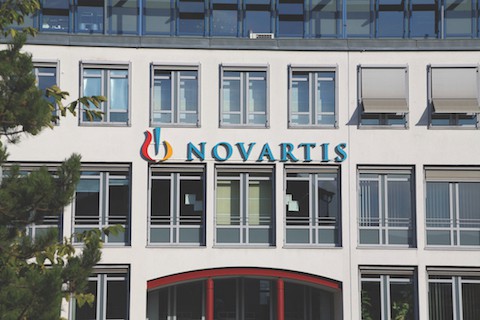
The European Commission (EC) has approved Novartis’ Kesimpta for the treatment of relapsing forms of multiple sclerosis (RMS) in adults with active disease.
The approval came after a positive opinion was issued for subcutaneous Kesimpta (ofatumumab) in RMS by the European Medicines Agency’s Committee for Medicinal Products for Human Use (CHMP) in January 2021.
The approval is based on results from the phase 3 ASCLEPIOS I and II studies, in which Kesimpta (ofatumumab) demonstrated superiority over Sanofi’s Aubagio (teriflunomide) in reducing the number of confirmed relapses in patients with relapsing forms of MS.
Kesimpta also met the key secondary endpoints, which included delaying time to confirmed disability progression, in the head-to-head study.
In the US, Kesimpta is also approved for the treatment of RMS, to include clinically isolated syndrome, relapsing-remitting disease and active secondary progressive disease in adults.
The CD20 monoclonal antibody (mAb) was originally developed by Danish biotech company Genmab, and subsequently developed and marketed worldwide by Novartis under a licence agreement.
According to Genmab, Kesimpta is the first B-cell therapy that can be self-administered at home using Novartis’ Sensoready autoinjector pen.
The new EU approval for Kesimpta builds on Novartis’ existing presence in the therapy area, which includes its active secondary progressive multiple sclerosis (SPMS) therapy Mayzent (siponimod).
However, Kesimpta is entering a crowded market, with a number of new drugs having debuted in the MS therapy area recently, joining established brands such as Roche’s intravenous infusion therapy Ocrevus (ocrelizumab) and Aubagio.
In particular, both Kesimpta and Ocrevus selectively target the immune system’s CD20-positive B cells that damage nerve tissue and cause disease progression.
Roche’s drug is also the only drug approved for the treatment of primary progressive MS.
However, Novartis’ global head of value & access Haseeb Ahmed said Kesimpta has the “potential to become a first-choice treatment to help improve the quality of life of people living with MS, as well as having broader value in potentially reducing medical costs associated with infusion therapies”.
Also recently entering the RMS market is Johnson & Johnson’s (J&J) Ponvory (ponesimod), which scored approval in the US in March.
Unlike Kesimpta and Ocrevus, which target CD20-positive B cells, Ponvory inhibits S1P1 receptor activity, which is believed to reduce the number of circulating lymphocytes.
In people with MS, inflammatory immune cells such as lymphocytes can cross the blood brain barrier into the brain, damaging the protective sheath that insulates nerve cells – known as myelin.
When myelin is damaged, nerve conduction can slow down or stop completely, leading to the neurologic signs and symptoms associated with MS.
Last week, the CHMP issued a positive opinion for Ponvory in the RMS indication, moving it closer towards EU approval.




